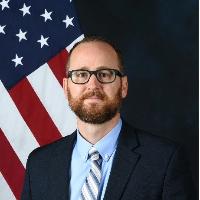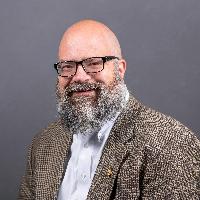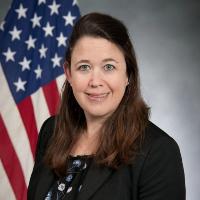
Jessica Blankshain
Jessica Blankshain is an associate professor of National Security Affairs at the US Naval War College, where she teaches courses on foreign policy analysis and civil-military relations. She is co-author of Decision-Making in American Foreign Policy: Translating Theory into Practice.

Kerry Chávez
Dr. Kerry Chávez is an instructor in the Political Science Department and project administrator at the Peace, War, and Social Conflict Laboratory at Texas Tech University. Her research focuses on the politics, strategies, and emerging technologies of modern warfare and international security. In short, how do states and nonstate groups fight, and why? She has two novel datasets collected to examine new questions and conventional ones at greater resolution.

Nicholas Dockery
Maj. Nicholas “Nick” Dockery is a Special Forces officer, a United States Military Academy (USMA) alumnus, and a General Wayne Downing Scholar. He is an active voice in military and cyber policy, including work with the Pentagon’s Irregular Warfare Strategic Design Group. His operational experience spans across Central and South America, and he has notably served as the aide-de-camp to the 1st Special Forces Command commanding general.

Philip Hultquist
Dr. Philip Hultquist teaches for the Global and National Security Policy Institute at the University of New Mexico and is a fellow for the National Institute for Deterrence Studies. Previously, Philip taught politics, policy, and strategy for the US Army School of Advanced Military Studies (SAMS) and served as the interim director of the Goodpaster Scholar Program, the US Army’s practitioner PhD program….

Jesse Humpal
Jesse Humpal is an Air Force officer and MQ-9 evaluator pilot. He currently serves as a strategy advisor in the Office of the Under Secretary of Defense for Policy and is the designated federal officer for the Secretary of Defense’s Defense Policy Board. Prior to this role, he was the director of research for the Joint Special Operations Command, where he led their wargaming and lessons learned program….

Eric Hundman
Dr. Eric Hundman is senior research analyst in the China Research Division at BluePath Labs and an adjunct lecturer at the Johns Hopkins School of Advanced International Studies. His research focuses on military decision-making processes, combat effectiveness, foreign policy, and international relations, with a regional focus on China and Taiwan. His research and commentary have been published in peer-reviewed outlets…

Tammy Palacios
Tammy Palacios is a senior analyst leading the Priority Sustainable Counterterrorism initiative at the New Lines Institute. Palacios previously served as program head for the Nonstate Actors program at New Lines, where she worked in the field of violent and non-violent nonstate actors. She is a proponent for sustainable counterterrorism and counter-violent extremism as supported by a truly cross-sectoral and multi-faceted understanding of the individuals…

Edward Salo
Edward Salo is an associate professor of history and the associate director of the Heritage Studies PhD program at Arkansas State University. He received his PhD in public history and MA in history from Middle Tennessee State University and a BS from East Tennessee State University. He was also a member of the first Normandy Scholars program at the University of Tennessee.

Emily Stranger
Emily Stranger is the regional expertise and culture (REC) instructor for the 95th Civil Affairs Brigade (Airborne), 1st Special Forces Command and a PhD candidate in the Central Eurasian Studies department at Indiana University (IU). She is also a 2022-2023 Joint Special Operations University (JSOU) Non-Resident Fellow.

Heather Venable

